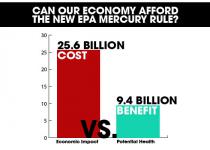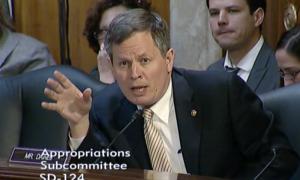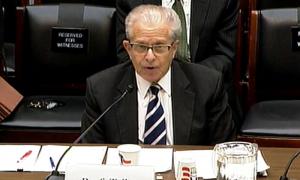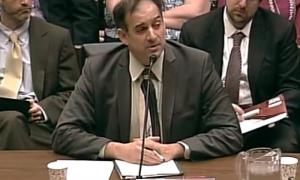EPA Administrator Gina McCarthy has been saying repeatedly that the EPA's Clean Power Plan to limit carbon emissions from coal-fired power plants give states flexibility. "We're particularly interested in making sure states and utilities can achieve emissions reductions along a flexible glide path so that they can meet their targets," she said recently. "Flexibility is the key to this proposal."

The Clean Power Plan: Not a Viable Solution for the American Worker
By now, you’ve probably read about the Environmental Protection Agency’s proposed “Clean Power Plan,” and maybe even what it will mean for consumers, businesses, and anyone else who uses electricity in their daily life.

How Coal-Fired Steam Boilers Work
See how an industrial steam boiler works in this animated video. Produced by Wide Awake Films, Kansas City, Mo.

Ivanpah: World’s Largest Thermal Energy Facility
Members of the International Brotherhood of Boilermakers, along with other union trades, build the award-winning Ivanpah thermal energy facility, located in the California Mojave Desert. It is the largest facility of its kind. Produced by Wide Awake Films, Kansas City, Mo.

US pledges emissions cuts of up to 28% ahead of global climate treaty
The White House pledged to cut carbon pollution by up to 28% on Tuesday, boosting the prospects for an international agreement on climate change at the end of the year.
With the US pledge, the countries accounting for nearly 60% of greenhouse gas emissions from energy have outlined their plans for fighting climate change in the 2020s and beyond, the White House said in a conference call with reporters.

Rising thermal coal imports set to propel India to top spot
April 5, 2015: India may soon become the world’s largest importer of thermal coal, nudging the current top-ranking China to second position. India’s thermal coal imports have begun to attract global attention as volumes steadily grow and China begins to slow.

The EPA's Mercury Rule Will Cost The Economy At Least $16 Billion Per Year
Mercury and Air Toxics Standard—the legality of which is before the U.S. Supreme Court this term—will produce $24 to $80 billion in net economic benefits to U.S. citizens by improving their health. To put these figures in perspective, the profits of the five largest American health insurance companies were a combined $12.7 billion in 2014. In other words, the EPA says the power of its regulatory pen is roughly two to six times more productive than the Big Five health insurers combined.
















